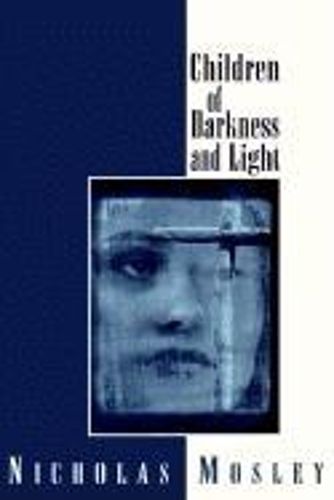Readings Newsletter
Become a Readings Member to make your shopping experience even easier.
Sign in or sign up for free!
You’re not far away from qualifying for FREE standard shipping within Australia
You’ve qualified for FREE standard shipping within Australia
The cart is loading…






In Children of Darkness and Light, Mosley takes on what for most novelists has been the most challenging of subjects: a novel directly concerned with religious belief. A middle-aged, burnt-out journalist is sent to the north of England to do a story about the possible appearance of the Blessed Virgin to a group of children, though this may be a rumor initiated by the government to cover up a nuclear disaster. Or both. Out of such conflicting possibilities, Mosley invents a sinister world where nothing is what it seems to be. And as Mosley’s narrator moves through the possibilities of half-truths, lies, conspiracies, and betrayals, he himself creates a parallel crisis in his personal life wherein he and his wife are trying to destroy their marriage or save it, or - as we come to expect in Mosley novels - do both at once. And behind all this is the possibility that the narrator - half philosopher and half would-be saint - is little more than a middle-aged man trying to justify his irresponsibility and infidelity behind a shield of wit and irony.
$9.00 standard shipping within Australia
FREE standard shipping within Australia for orders over $100.00
Express & International shipping calculated at checkout
In Children of Darkness and Light, Mosley takes on what for most novelists has been the most challenging of subjects: a novel directly concerned with religious belief. A middle-aged, burnt-out journalist is sent to the north of England to do a story about the possible appearance of the Blessed Virgin to a group of children, though this may be a rumor initiated by the government to cover up a nuclear disaster. Or both. Out of such conflicting possibilities, Mosley invents a sinister world where nothing is what it seems to be. And as Mosley’s narrator moves through the possibilities of half-truths, lies, conspiracies, and betrayals, he himself creates a parallel crisis in his personal life wherein he and his wife are trying to destroy their marriage or save it, or - as we come to expect in Mosley novels - do both at once. And behind all this is the possibility that the narrator - half philosopher and half would-be saint - is little more than a middle-aged man trying to justify his irresponsibility and infidelity behind a shield of wit and irony.